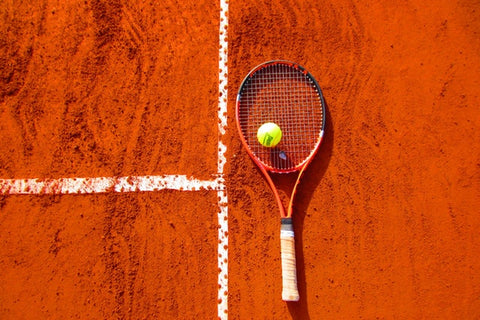Cryptocurrencies, Blockchain and The Sporting World

‘Bitcoin, cryptocurrency, blockchain’ - it seems these words are infiltrating the world’s vocabulary without most of us knowing what they really mean. To some they promise the chance of a pot of gold at the end of the rainbow, to others they seem more like fools gold. As I write, Venezuela is launching ‘Petro’, a cryptocurrency reported to have raised $5bn since its pre-sale launch in late February. The Petro is one of the first sovereign cryptocurrencies and a way for the beleaguered country to unlock some value from its vast oil reserves. The stakes for the success couldn’t be higher .1

In 2016 paper from MIT argued that the case for the broad application of blockchain might not be as great as the early adopters would have us believe. Is this technology a panacea to all our modern day challenges? Something close to our hearts at Adé Lang is sport and of course, rowing. Could this state of the art technology be applied to sport? We love a challenge at Adé Lang so we decided to look into this further and see how these processes are being used in the world of sport. Could our pot of gold be found in a distributed ledger??
The distraction of Bitcoin
Look up these different terms and the definitions can be bamboozling. Yet at the very heart of what quickly becomes complicated is a simple idea. However, before we start, let’s remove the distraction of Bitcoin. Bitcoin is a digital currency built upon Satoshi Nakomoto’s seminal 2008 paper, Bitcoin: A Peer-to-Peer Electronic Cash System. Blockchain, and this is important, is the technology on which Bitcoin, Ethereum, Ripple and numerous other cryptocurrencies and private network applications are based. It is the application of blockchain that has the potential to be used across many sectors, far removed from a secure payment system outside of the reach of governments, central banks. We need to unravel the mystery of blockchain, not Bitcoin, to begin to understand what these new technologies are.
What is blockchain?
- It is the term used to describe a string or ‘chain’ of records/data and these records have digital signatures.
- The records can be any information such as banking transactions, medical records, and voting records2. The records are the blocks in the chain.
- This chain of information however is not held on a central computer, it is a shared database hosted by millions of computers.
- As a shared database, it is continually reconciled by each of the computers. This decentralized network is known as a distributed ledger (DLT)
It is claimed that with these distributive ledgers great leaps in technology will be made.
What’s the benefit? Why the fuss?
There are a number of advantages to the blockchain technology. For a start blockchain offers a higher level of security. It would take an extraordinarily large computer to hack all the computers that reconcile the ledger. As a consequence, the data is incorruptible and easy to verify. This can be a very attractive prospect for financial institutions, healthcare providers and electoral commissions. Another advantage is there can be no single point of failure and the data cannot be controlled by one entity. No one organisation can maintain the ledger so control is shared. The digital nature of these DLTs results in record keeping that is fast, efficient and highly secure. Sounds good doesn’t it?

The world of sport
So where does that fit in to the world of sport? You don’t need us to tell you that there is a lot of money involved and made from some sports. The market size is huge and wide ranging from athletes, clubs and teams to events, brokerage firms, venues, and equipment. Perhaps not a surprise then that some entrepreneurs have embraced the distributive ledger and applied it to some of the more lucrative areas of sport.
Initial Coin Offerings – a funding model for future talent?
A great example of blockchain in sport is the rise of companies such as Globatalent, SportyCo and TokenStars. They all use blockchain based crowdfunding platforms to raise funds for up and coming athletes – Initial Coin Offerings (ICO), something that regulators globally are taking a long hard look at right now. Blockchain, they claim, offers them the best, most secure and transparent method of raising money from individuals not companies. By decentralizing investment away from agencies direct to the fans themselves, they claim that the sport industry will change for the better. The idea is that an athlete will view his or herself as an asset and issue his or her own cryptocurrency coins to fund their sport. The price of the coin will increase as the athlete becomes more successful.
The transparent nature of the blockchain means that fans and investors will have access to all the financial and training data from the athlete so there should be greater insight into what a fan is investing in. However, none of this comes for free and these services have to be paid for by the athlete. Any talented player is still signing away future earnings to gain the funding now. It is not obvious what difference it will make to the players themselves! These opportunities will of course still have to make financial sense to investors so will highlight the gap in potential funding between different sports. It doesn’t take much of a financial wizard to realise that investing in a rising tennis star will be more profitable than investing in your local women’s hockey team, rowing or squash club.
Make your data work for you
Of course helping individuals reach their full potential is not exclusive to elite sports. Perhaps of more relevance to the rest of us, there are signs that blockchain technology will allow an individual to ‘sell’ their personal training data to health and insurance companies. Microsoft and AMIS launched BraveLog 3last year working with a Taiwanese insurance company, Fubon Life Insurance.
They use blockchain technology to help customers reduce their health insurance premiums and incentivise healthy living. This is in the early stages of development but individuals shared their personal data from a triathlon event including biometric measurements onto a blockchain. The decentralized nature of blockchain means that the data is not controlled by the insurance company but the individual themselves. In the future there may be opportunities for this data to be shared with health care professionals as well as the insurance companies. The implication of selling personal data is not for the discussion on this blog but it is something that needs careful consideration before embarking upon!
Future opportunities in sport with blockchain
There are, we suggest, opportunities for blockchain use that have not yet surfaced beyond the drawing board. We are all familiar with the doping scandals that hit the headlines over and over again. This is a problem that will not go away. Could the transparent and secure nature of the blockchain be utilised to record the drug testing of elite athletes? Surely, anti doping agencies would jump at the chance to have the ability to demonstrate verified data that cannot be tampered with? If so, why is blockchain not being utilised by these agencies?

The same could be said of training data. At Adé Lang we love our rowing (you might have noticed) and when the boat selection has not gone our way, it can be hard to take sometimes. Would transparent, verifiable and trusted times and ergo scores help to understand how some decisions are made? Rowing has embraced technology and there are gadgets and apps for everything. Training data is key for coaches and there are already apps out there for coaches and athletes to use to create training plans and record ergo scores and physiological data. Could blockchain be used to make this monitoring easier and more transparent? If blockchain is an opportunity for recording rowing training data then could it be useful for many other sports too? Cycling, triathletes, and runners? The weekend warrior is often motivated by the latest in sports technology to get their training done more efficiently and as we have discussed their training information would be very valuable to health insurers and healthcare providers.
It seems unlikely that these blockchain applications have been missed but are not attractive to entrepreneurs because do not offer much of a return on investment. Anti doping agencies are not organisations driven by profit (or at least I don’t think so!) and the financial opportunities in amateur sports and their transparent training tools are not an easy sell.
Will I be going all-in any time soon on an ICO? No I probably won’t, not yet, but we already know there is a big difference between a speculative cryptocurrency and next generation data sharing, analysis and security that blockchain promises. Pot of gold at the end of the rainbow, not yet! Blockchain, AI and Quantum computers – now that is another story for another time.

